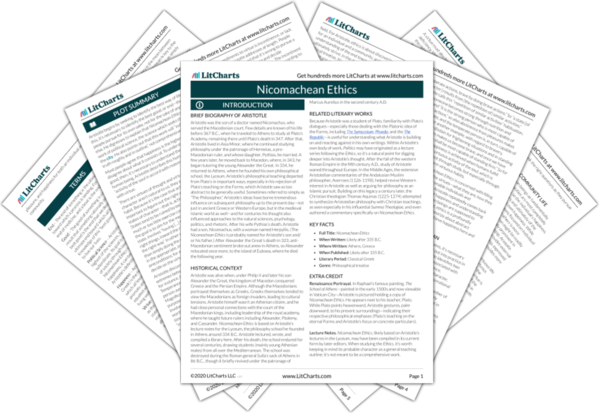Previous
Prudence
|
Previous
Prudence
|
Continence / Incontinence Term Analysis |
Next
Friendship
|
In fact the incontinent person is like a city that votes for all the right decrees and has excellent laws, but does not apply them, as in Anaxandrides' taunt, 'The city willed it, that cares nothing for laws'. The base person, by contrast, is like a city that applies its laws, but applies bad ones.[…] The [impetuous] type of incontinence found in volatile people is more easily cured than the [weak] type of incontinence found in those who deliberate but do not abide by it. And incontinents through habituation are more easily cured than the natural incontinents; for habit is easier than nature to change.
